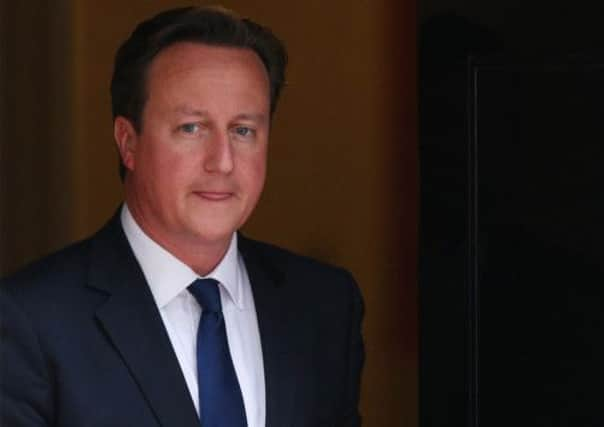Michael Fry: Tackling tax evasion


Perhaps president Putin, once he is home again, will throw one of those wild Russian parties for his favourite oligarchs.
“Ah, Vladimir Vladimirovich,” they will chortle, “So, thanks to you, and to that nice David Cameron, we have a ten-point plan to tackle global tax evasion.”
Advertisement
Hide AdAdvertisement
Hide AdPutin will give a thin-lipped, enigmatic grin, one of those where his eyes do not smile at all. “Na zdravie!” they will all chorus, as another round of vodkas goes down the hatch.
In a country such as Russia, where the ruling class ruthlessly exploits natural resources for cash to be deposited in western banks, it is indeed hard to see how Cameron’s sudden Boy-Scout’s enthusiasm for squeaky-clean global finance will ever get anywhere.
Oligarchs arriving from Moscow are sure of a warm welcome in the City of London itself, for nobody minds their money propping up everything from the capital’s housing bubble to the local football clubs.
And it is not just the Russians that take advantage – the least regulated of any major financial market in the world is open to all who are rich enough to avail themselves of its expensive laundering services – and stay in the Ritz while at it.
In fact, with the real economy still in the doldrums, this particular branch of UK Ltd is what keeps Cameron’s show on the road.
Hence his own reluctance to grasp the nettle of domestic banking reform a full five years after the financial crash. And, hence his unwillingness so far to contemplate any fresh regulation that might diminish the flow of enriched milk from the sacred cow of the City, this after the greatest failure of its regulation in history.
The reason is obvious: any effort to regulate such business would just cause it to up sticks and go somewhere else.
That could only be avoided in an ideal world, the sort of world that seemed to be at the back of Cameron’s mind as he outlined his quixotic ideas for universal transparency.
Advertisement
Hide AdAdvertisement
Hide AdNo doubt the other leaders of the G8 had nodded sagely when, behind closed doors, he did the same for them. None seems likely to take the slightest notice, and some have already made clear they will not.
In fact planet Earth in the 21st-century needs tax havens. They are a reminder of a world which has been almost lost, where private property was reckoned to be the business first and foremost of the person who possessed it, indeed of no concern to others except in cases where its use impinged on their own liberty.
Such cases were for the most part easily recognisable – Victorian factory chimneys and the like – and could be readily regulated by law to general consent.
This almost-lost world survives best in the US, though it has, in recent times, come under pressure from political correctness.
Still, this remains a country individualist in nature yet not merely egotistical, as shown by the willingness of Americans to join in voluntary associations of every kind and to sort things among themselves rather than appeal at the drop of a hat to public authority.
In Europe the country that comes closest to preserving the lost world is Switzerland, and banking secrecy is a badge it wears proudly. While the sturdy Swiss stick to their principles, Cameron will prattle in vain.
The lost world was not without its flaws: even this world was imperfect too, like all worlds. It could deal at little cost with individual delinquency, but found it much harder to get to grips with problems arising from categories of social exclusion, whether of sex or race or class.
Even so a good deal could be done through legislation of the most general nature, such as the 13th, 15th and 19th amendments to the US constitution, the basis of the modern equality of black people and of women.
Advertisement
Hide AdAdvertisement
Hide AdWhere nations start to go off the rails is when they pass from general legislation to detailed regulation.
This has been the pattern in post-war Britain. Even in the 1950s, as the welfare state was being constructed, the UK government used to issue about 2,000 parliamentary statutory instruments a year.
Nowadays the figure is over 3,000, and nearly 500 of these are from the government of Scotland.
It may be protested that a lot of the statutory instruments are benevolent in intention, and perhaps this is true.
But, when you get the total of 5,212 statutory instruments that we had in the first ten years of the Scottish Parliament then surely there may be a question of overload. It first becomes a problem even to understand and master legislation in this kind of volume, and then a problem to apply it.
Some of these laws may be inconsistent with one another. And, especially in specialised fields where politicians are only ever going to be amateur intruders, the degree of detail invites evasion and exploitation by experts or those who can pay for their advice. So if Cameron wants new rules on tax and transparency, he would do best to set his own political house in order.
Most of the transgressions he appears to be thinking of are only made possible by the legislation he and his predecessors have passed – and there are legions of lawyers and accountants looking for loopholes in every new piece of it that comes along.
The argument applies with still greater force to the government of Scotland and its conviction that the answer to every problem, from high hedges to sectarian singing, must be to pass a law against it.